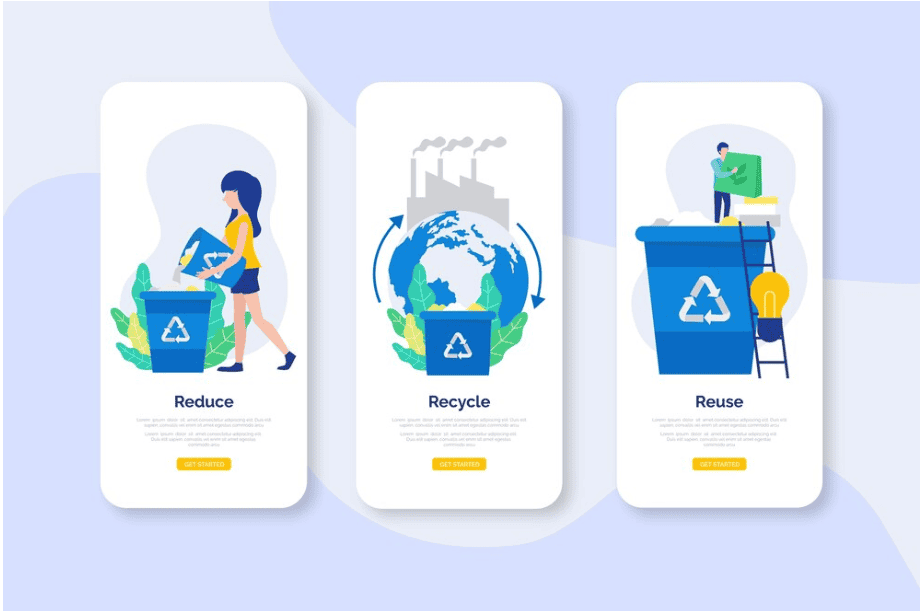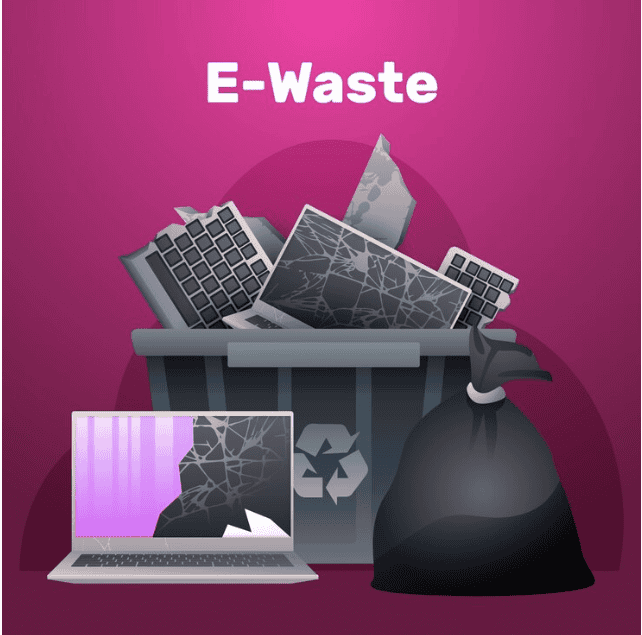However, these gadgets come with a hidden cost—the generation of electronic waste, or e-waste. As the world’s economy becomes increasingly digitized, Dubai, a rapidly growing global hub of commerce and technology, faces a mounting challenge in managing its e-waste. This article explores the scope of the e-waste problem in Dubai, its environmental implications, the current efforts to combat it, and potential sustainable solutions for the future.
The Growing E-Waste Crisis in Dubai
Dubai is one of the fastest-growing cities in the world, with a population that embraces technology and innovation. As a result, the consumption of electronics in the city has soared. New devices are regularly being introduced, and with an increasing focus on digital transformation, the demand for smart devices and gadgets is higher than ever. However, the rapid turnover of electronic products—due to upgrades, fashion trends, and obsolescence—has led to a surge in discarded electronic devices. This discarded technology, or e-waste, is one of the fastest-growing waste streams globally.
According to the Global E-Waste Monitor 2020, the world produced 53.6 million metric tons of e-waste in 2019, with an expected growth rate of 21% by 2030. Dubai, as a tech-forward city, contributes significantly to this figure. In 2020, the UAE as a whole generated an estimated 116,000 tons of e-waste. While these numbers may seem overwhelming, the e-waste crisis poses serious threats not only to the environment but also to human health.
Visit:
Environmental and Health Implications of E-Waste
The improper disposal of e-waste is a major environmental concern. E-waste contains hazardous materials, including heavy metals such as lead, mercury, and cadmium, and harmful chemicals like flame retardants. When not properly managed, these toxins can leach into the soil, air, and water, contaminating natural ecosystems and impacting human health. For example, when old electronics are dumped in landfills, the heavy metals can seep into the groundwater, posing a long-term risk to the city’s water supply.
In addition to soil and water contamination, the burning of e-waste can release toxic gases into the atmosphere, contributing to air pollution. These pollutants can have serious health consequences, including respiratory problems, organ damage, and even an increased risk of cancer. Children and low-income communities who live near e-waste dumping sites are particularly vulnerable.
Beyond environmental harm, there is a significant loss of valuable resources associated with e-waste. Many electronic devices contain precious metals such as gold, silver, and palladium, which could be recovered and reused. Unfortunately, without proper recycling programs in place, these valuable materials are often lost, contributing to the depletion of natural resources.
E-Waste Management in Dubai
Dubai’s government has recognized the need to address its growing e-waste challenge. While the city’s commitment to sustainability and environmental initiatives is commendable, e-waste management has only recently gained more attention. Currently, the United Arab Emirates has implemented policies and guidelines to address e-waste through waste separation and collection efforts. Dubai’s municipality, alongside private waste management companies, has initiated various programs to raise awareness and improve recycling rates.
For example, the Dubai Municipality has introduced specialized e-waste collection centers across the city, encouraging residents to dispose of their old devices responsibly. These centers accept a wide range of items, from smartphones and computers to household appliances and batteries. Additionally, several private companies in Dubai offer e-waste recycling services, ensuring that valuable components are extracted and hazardous materials are safely treated.
One of the key players in Dubai’s e-waste management landscape is Enviroserve, a UAE-based recycling company that specializes in electronic waste recycling. In 2019, Enviroserve launched a state-of-the-art e-waste recycling plant in Dubai, the largest facility of its kind in the region. This facility can process 39,000 tons of electronic waste annually, focusing on safely dismantling and recycling various electronic devices. Such initiatives are vital for diverting e-waste from landfills and recovering valuable resources that would otherwise be lost.

Challenges in E-Waste Recycling
Despite these efforts, e-waste recycling in Dubai still faces several challenges. One of the primary obstacles is the lack of awareness among the public. Many residents are unaware of the proper disposal methods for electronic waste, and as a result, old devices are often discarded with regular household waste or left in storage, contributing to the growing e-waste problem. Furthermore, the demand for continuous upgrades of electronic devices encourages a “throwaway culture,” where functional devices are replaced simply by newer models.
Another significant challenge is the informal recycling sector, which, although small in Dubai compared to other regions, can be hazardous. Informal recycling often involves unsafe practices such as burning electronic components to recover metals, which releases toxic fumes into the environment. This method of handling e-waste can be particularly dangerous for workers, exposing them to harmful chemicals and increasing the risk of long-term health complications.
Moreover, the absence of stringent regulations on e-waste disposal and recycling contributes to the problem. While Dubai has made progress, more robust and enforceable policies are needed to ensure proper recycling and disposal practices across all sectors.
Future Solutions for a Sustainable Dubai
To effectively tackle the e-waste crisis in Dubai, a multifaceted approach is necessary, involving policy reforms, technological innovation, and public participation.
- Strengthening Regulations: The government could introduce stricter e-waste disposal and recycling regulations. These regulations should mandate proper disposal practices for businesses and consumers alike. Companies that produce electronics should also be held accountable through Extended Producer Responsibility (EPR) programs, which require manufacturers to take back and recycle old products.
- Public Awareness Campaigns: Raising awareness about the dangers of e-waste and the importance of recycling is crucial. Educational campaigns could be launched to inform residents about e-waste collection points, recycling facilities, and the environmental impact of improper disposal. Encouraging the public to adopt a culture of repairing or donating old electronics rather than discarding them is another key component.
- Incentivizing Recycling: Financial incentives could be offered to encourage individuals and businesses to recycle e-waste. For instance, implementing a deposit-refund system for electronic products, where consumers receive a refund when they return old devices, can motivate proper disposal.
- Innovation in Recycling Technology: Investing in advanced recycling technologies can make the e-waste recycling process more efficient and environmentally friendly. Developing systems to recover more valuable materials and safely dispose of toxic components should be a priority.
- Circular Economy Models: Adopting circular economy principles—where products are designed to be reused, repaired, and recycled—can significantly reduce e-waste generation. Businesses could explore creating products that are easier to repair and upgrade, rather than replacing them entirely.
Also Visit:
ewaste recycling companies in UAE
In Conclusion,
E-waste is an emerging environmental challenge in Dubai, but it also presents an opportunity for innovation and sustainability. By addressing the root causes of e-waste and implementing comprehensive solutions, Dubai can position itself as a global leader in responsible technology consumption and environmental stewardship. The road to a sustainable future requires collaboration between government, businesses, and individuals, all working together to turn the tide against the growing digital waste problem.

